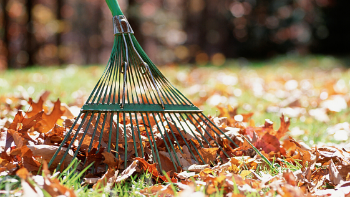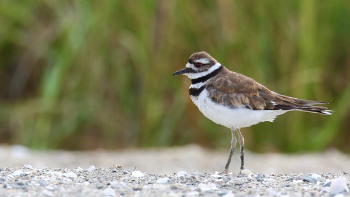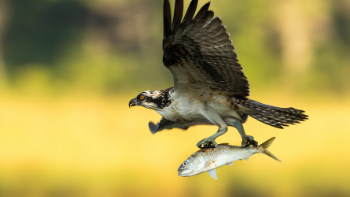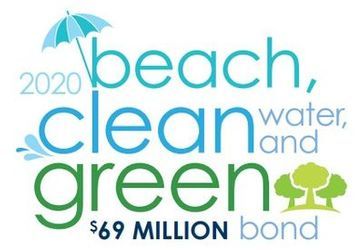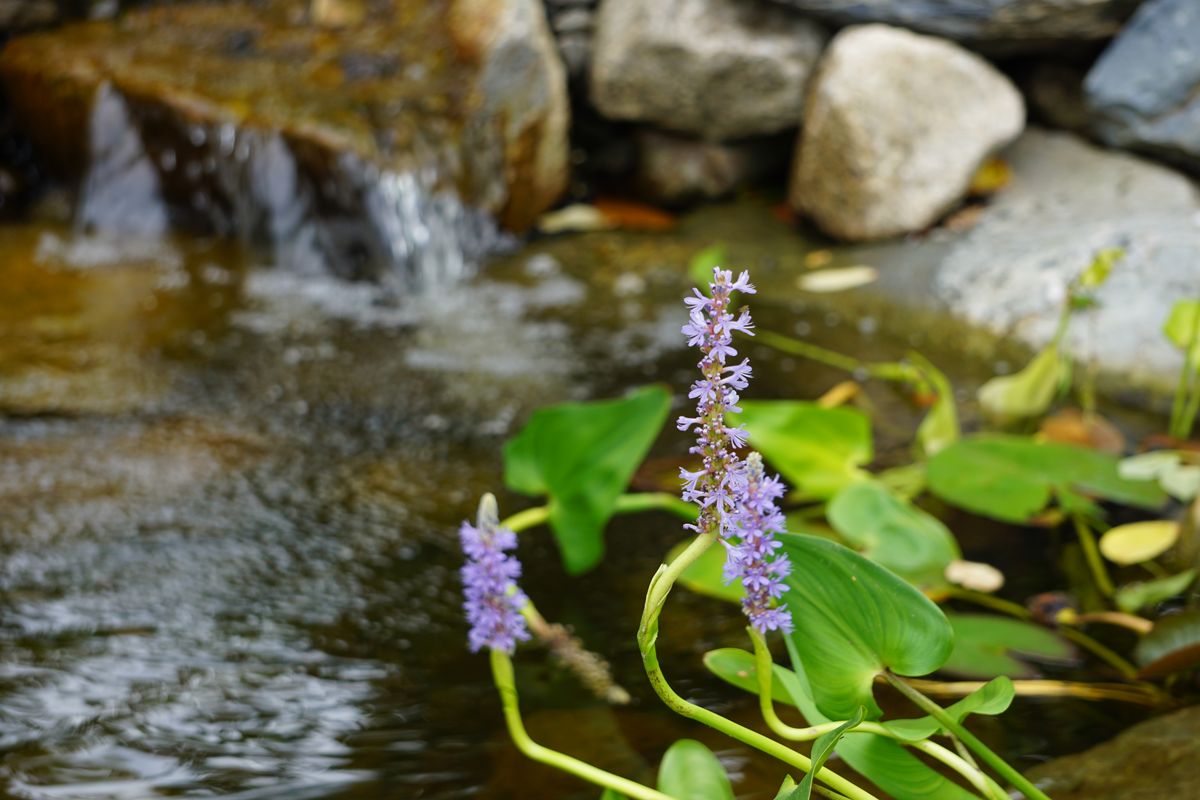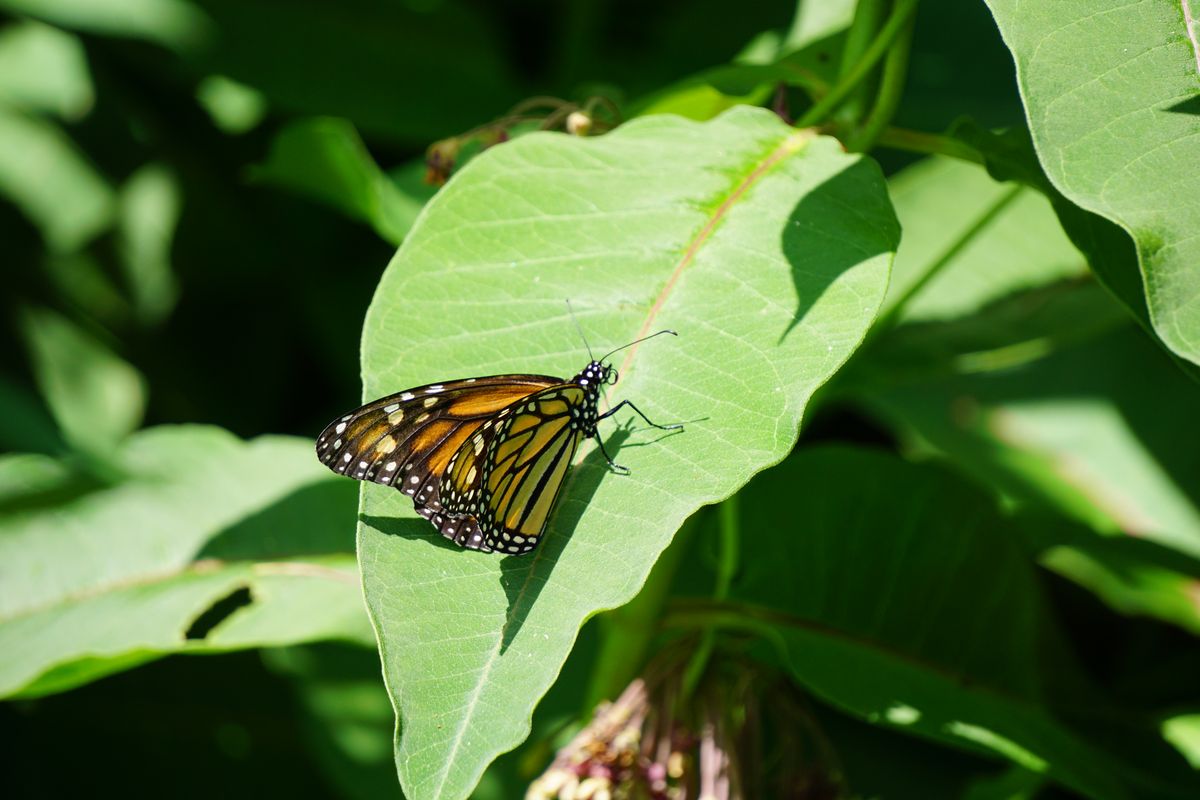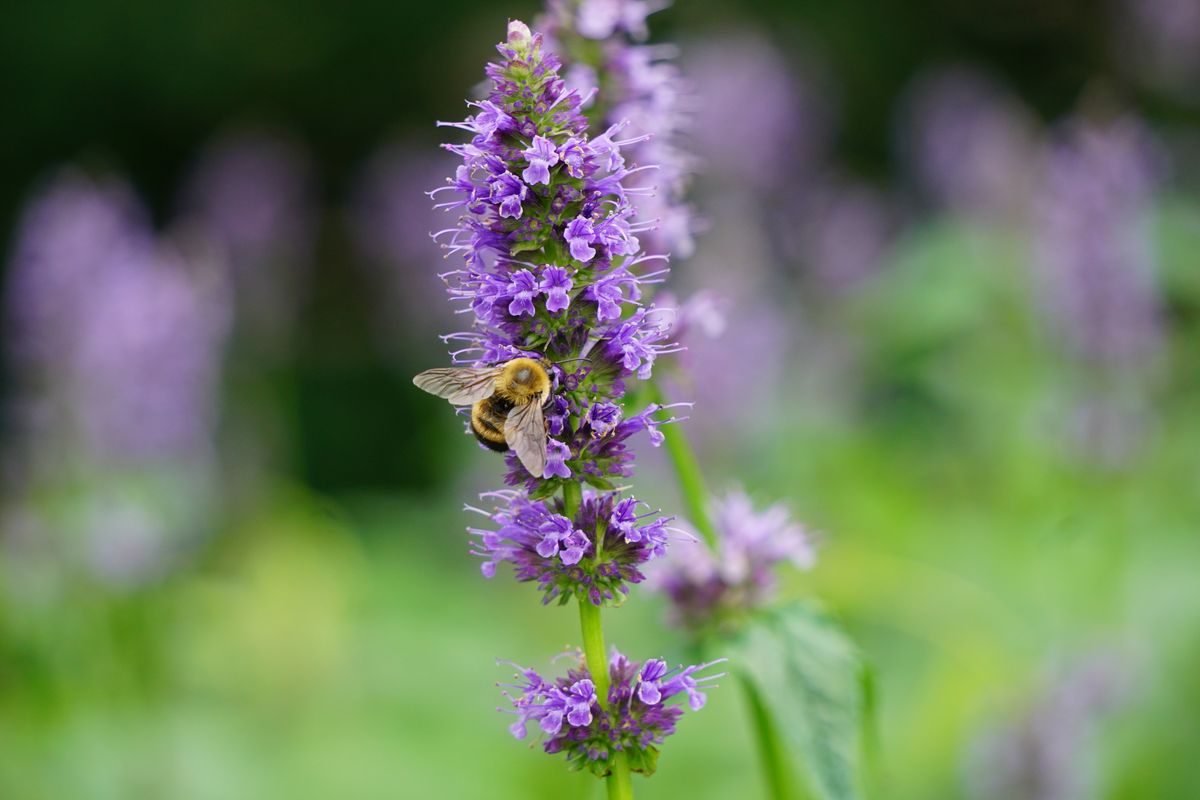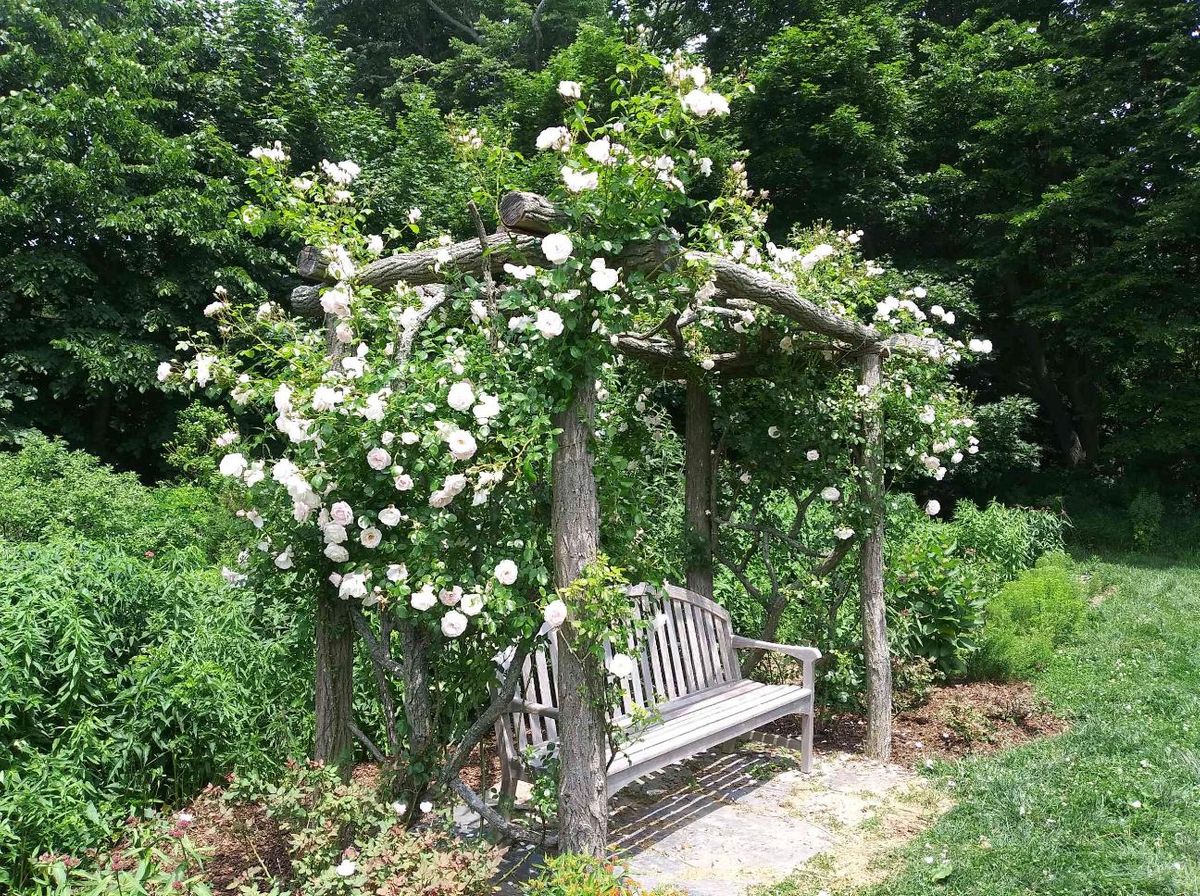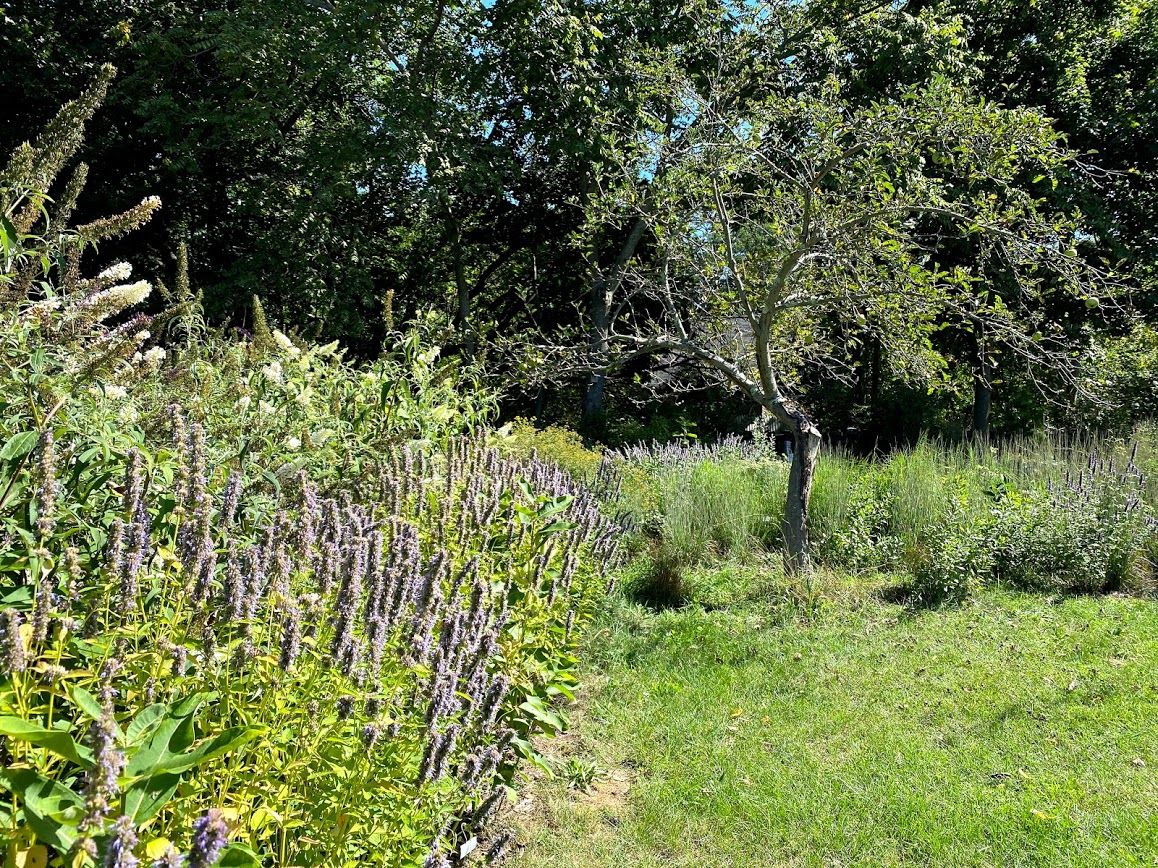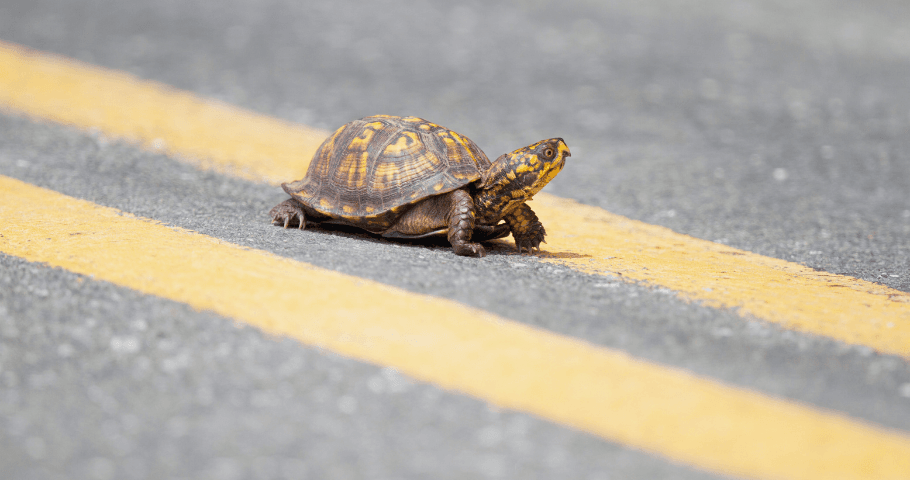
September 2020
The monthly Audubon Eagle Eye Advocacy Updates will provide you with simple actions you can take to help foster a cleaner, healthier planet along with local and national environmental news. Advocacy to protect birds and wildlife is a top Audubon priority and this work goes beyond testifying on their behalf on Smith Hill. Year round, we are working with our community partners and Rhode Island leaders to ensure the environment is a priority. These updates will keep you informed and ready to take action when the legislative session is upon us. As the newsletter continues, we are very interested in your suggestions and questions. Please send them to Audubon Senior Director of Policy Meg Kerr at mkerr@asri.org.
Sign up to get the Audubon Eagle Eye Advocacy Update in your inbox!
Pick Up a Rake This Fall (or Don't!)
If leaving your lawn messy is unrealistic on your property, consider switching out your leaf blower and grabbing a good old-fashioned rake.
Around 70% of bees nest in the ground. In the peak of summer, it's easy to focus on providing pollinators with floral resources, but it's also important to remember that insects need shelter for nesting and overwintering. When leaves fall, bees and other insects find safe habitat in the leaf litter.
A leaf blower hurls mega-hurricane winds of up to 200 miles per hour at the soil and leaves. The wind damages and kills insects in the leaf litter. While raking will disturb insects, few will be killed and most can find new habitat.
Leaf blowers also guzzle gas, producing significant emissions of greenhouse gases. And they are loud, disturbing to neighbors, and can contribute to hearing loss.
If you like to exercise regularly, think of raking as your run or walk for the day. Raking is considered moderate exercise similar to a brisk walk.
The bees will thank you.
A Big Win for Birds
She then strongly disagrees with the Department of Interior’s December 22, 2017, Memorandum M-37050, which concludes that the Migratory Bird Treaty Act (MBTA) prohibition on the “taking” or “killing” of migratory birds applies only to deliberate acts intended to take a migratory bird. The M-Opinion states that the Trump administration will not seek criminal penalties against individuals and industries —such as oil and gas, as well as renewable energy— for incidentally taking migratory birds. The M-Opinion significantly limited the scope of the take prohibition in the MBTA, reducing the potential liability for development of infrastructure and renewable energy projects.
Judge Caproni writes that Interior’s opinion violates the letter of the law for the past century and contradicts Interior’s long held position that even incidental take or kill of a migratory bird violated the MBTA “irrespective of whether the activities targeted birds or were intended to take or kill birds.”
The August 11 order overrides the Administration’s M-Opinion.
A Big Win for Atlantic Menhaden
Audubon worked with Save The Bay and the Rhode Island Salt Water Anglers to advocate for ERPs, meeting with Governor Raimondo, key Rhode Island Department of Environmental Management officials, and state ASMFC commissioners. Rhode Island’s delegation has been a strong supporter of protecting menhaden, and our voice was definitely heard.
The Pew Charitable Trusts has excellent coverage of this decision.
2020 Beach, Clean Water and Green Bond in Jeopardy
Please contact your state senator and state representative to ask for action on the 2020 Beach, Clean Water and Green Bond. We would like to see the bond approved as it was presented by the Governor. Click here for instructions and a sample letter/phone script from an earlier email.
Rhode Islanders have traditionally encouraged environmental investments, and past Green Bonds have received enthusiastic support throughout the state. In these unprecedented times with the economy struggling, these investments provide jobs as well as environmental protection.
During this awful pandemic, we have seen time and time again how important open space is to people throughout Rhode Island. Our state parks and beaches have been packed, as have been the trails at Audubon wildlife refuges. People in Rhode Island always value beaches, clean water and the environment. But during this unsettling time, the support has even grown.
The $69 million 2020 Green bond includes the following components:
- State Beaches, Parks and Campgrounds: $40 million for capital improvements, likely to include upgrades at Goddard Park beach, Roger Wheeler Beach, Scarborough State Beach, Misquamicut State Beach, Brenton State Park, and state campgrounds.
- Clean Water and Drinking Water: $15 million in matching funds for the Clean and Drinking Water State Revolving Funds. These matching funds will unlock close to $74 million in federal funds.
- Local Recreation: $4 million in matching grants to create new as well as improve existing community parks and recreation facilities.
- Natural and Working Lands: $3 million to conserve forested land and farmland.
- Municipal Resilience Program: $7 million to help communities restore and improve resiliency of vulnerable coastal habitats, rivers and stream floodplains and infrastructure.
Things with Wings
The Rose-Pollinator Discovery Garden at the Audubon Nature Center and Aquarium in Bristol has been lovely this year. It provides food, water, shelter and nesting habitat for innumerable species of native wildlife. It also welcomes Audubon visitors with sweet smells, stunning blooms, and educational signage about the importance of pollinators. Here are some photos to enjoy, and please consider visiting the garden and walking the easy trails in Bristol.
Community Responsibility
Audubon Summer 2020 Report Editorial
I hope that everyone is safe and healthy and weathering these difficult times as well as one can. I am not optimistic that the risks of COVID-19 will change soon, but I do think that we are learning useful lessons as the pandemic unfolds. It is vital that we care for the most vulnerable people in our communities, value health care providers and take responsibility for our impact on the world around us.
Governor Raimondo’s regular emails during the pandemic have been a welcome source of information for me. The emails report on the trajectory of cases in the state and review policy strategies crafted to help Rhode Islander’s get through the pandemic safely. The emails almost always end with the statement, “We’re all in this together,” a reminder that the difficulties we are suffering are broadly shared by everyone in the state. Governor Raimondo is reminding us that each of us has an important job to do. Each individual is just one among the approximately one million people in the state, but we are part of a broader community. And we can decide to be a powerful force for good or harm. We can behave as an individual untethered from the rest of the state and the environment or we can act as if we are part of a broad arc of humanity extending into the past and (hopefully) many, many years into the future. Governor Raimondo is asking us to take collective responsibility, and place the good of the community, our future grandkids or the grandkids of our neighbors, and the good of the world above our own individual desires and whims. Wear a mask. Wash our hands. Stay out of crowds as much as possible and always practice social distancing.
As the pandemic has raced around the globe, we have learned that seemingly healthy people can be carrying the virus and inadvertently spread it to the people they contact. We have seen how careless gatherings at beaches and parties as well as deeply important gatherings like funerals have led to the infection of entire groups of friends and families. The message is clear. We are all in this together and we all need to take responsibility for our own actions to protect our neighbors and friends.
Environmental organizations like Audubon have been promoting the “Your actions make a difference. Please do the right thing” message for decades. We talk about the need for people to reduce their personal carbon footprint by choosing to take a bus rather than drive a car, eat less (or no) meat and support the development of properly sited renewable energy. We make the connections between individual homeowner’s use of water to support lush green lawns which can reduce the volume of water in rivers and streams for fish and other wildlife. We work to address stormwater pollution by showing people that the rain falling on their homes, buildings, roads and businesses carries significant pollution to local waterways. The only way to effectively reduce this pollution is to take individual actions like not using fertilizers and pesticides, installing rain gardens and using rain barrels. We encourage everyone to protect pollinators by planting native shrubs and flowers and eliminating pesticide use as much as possible.
All of us often feel insignificant compared to the environmental problems faced by our state, country and the world. “Will it really matter if I do the right thing?”, we ask ourselves. “What possible difference can ONE person make?”
The COVID-19 pandemic is answering that question for us. Yes, we are just one person, but even one person can make a real difference in the world. “We’re all in this together.”

